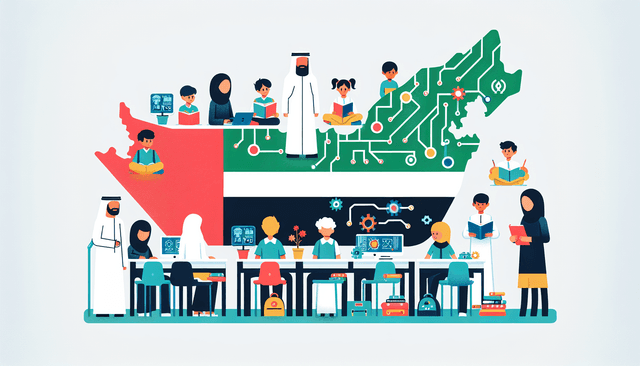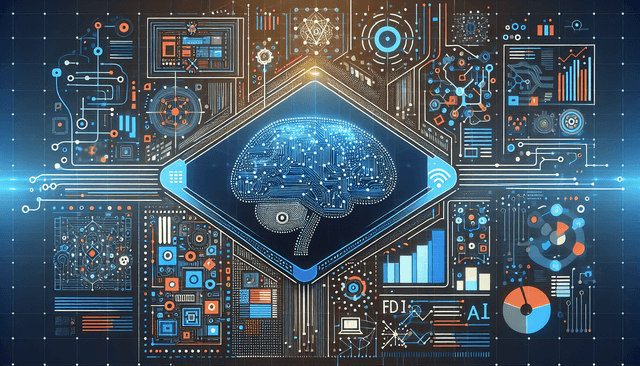Are AI Chatbots Transforming the Workplace Landscape?
Wednesday, May 7, 2025

There have been numerous forecasts about the impact of AI chatbots on the workplace, but current data suggests a more subdued effect than expected.
Despite significant advancements in generative AI, the anticipated major changes in the workplace have yet to materialize in a significant way.
Researchers Anders Humlum from the University of Chicago and Emilie Vestergaard from the University of Copenhagen conducted a thorough investigation, utilizing data from two large surveys (late 2023 and 2024) combined with detailed official records of employment and wages in Denmark.
The research focused on about 25,000 individuals across 7,000 different locations, covering 11 occupations potentially influenced by AI.
Results indicate a growing presence of AI chatbots in Danish workplaces, with many employers now advocating for their use—quite the shift from earlier concerns about data privacy.
Nearly 40% of companies have implemented their own chatbots, and close to a third of employees have received formal training on their use.
When management supported chatbot usage, employee adoption surged from 47% to 83%, helping to reduce the disparity between men and women users, especially when training was provided.
While the technology is widely used, resulting in corporate investments and training initiatives, the anticipated economic impact seems to be lacking.
Using statistical methods to differentiate between employees utilizing AI chatbots and those who don't, both before and after ChatGPT's introduction, the findings showed little to no difference.
The researchers described their findings as precise zeros, indicating no significant increase in pay or changes in work hours across the examined job categories, assuring their results with a confidence interval excluding effects larger than 1%.
This trend persisted even among early adopters of AI chatbots, those using them frequently, or in environments where technology promotion was strong.
Examining entire workplaces didn't alter the outcome; venues with high chatbot usage did not experience different trends in employment, overall salaries, or retention compared to low-usage counterparts.
The disparity between expectations and reality raises questions about the reasons behind the continued enthusiasm and investment despite the lack of visible impact on salaries or employment statistics. Two primary factors emerged: productivity improvements have been more modest than anticipated, and any gains have not translated into wage increases.
While AI chatbot users reported improvements in work quality and creativity, the primary benefit appeared to be time savings.
Statistical analysis revealed that the average time saved was only about 2.8% of a user's work hours—far less than the significant productivity gains reported in controlled experiments.
This discrepancy may be due to the focus of experiments on tasks suited to chatbots, such as coding assistance, while the study examined diverse roles, including teaching, which might see less pronounced benefits.
The researchers emphasized the importance of complementary investments such as training and institutional support in realizing the full potential of AI chatbots.
The modest time savings observed did not translate to significant wage gains. The study suggests that only a small fraction of the time saved—estimated at 3% to 7%—was reflected in earnings. This could be due to workplace inertia or reluctance to request raises for self-initiated tool usage.
AI chatbots are not just improving old tasks but also introducing new ones. About 17% of users reported taking on new workloads due to chatbot use.
This trend was more reported in environments encouraging chatbot use, even affecting some non-users who noticed emerging tasks, such as adapting to AI-generated student work.
New tasks include integrating AI into workflows, content generation, and handling ethical considerations. These trends suggest companies are in a learning phase rather than enjoying immediate benefits.
The researchers caution against dismissing generative AI entirely, seeing potential for it to become more consequential as integration improves and tasks evolve.
Currently, however, the findings suggest that the reality does not align with the hype of a widespread and immediate overhaul in the job market.
Despite widespread adoption and investment, the central conclusion is that AI chatbots have not significantly affected productivity and labor market results to date.
This situation mirrors past instances where technology was ubiquitous without evident productivity correlates, as seen with early computers.
While transformative changes might be on the horizon, they appear to be progressing gradually.
Latest News
Here are some news that you might be interested in.
Friday, May 9, 2025
Samsung Reports Record Revenue Through AI Strategy Amid Semiconductor Challenges
Read more

Thursday, May 8, 2025
UAE Integrates AI Education into Curriculum for Children
Read more

Thursday, May 8, 2025
ServiceNow Invests in Unified AI to Simplify Enterprise Challenges
Read more

Wednesday, May 7, 2025
Top 10 Tools to Enhance Developer Experience Insights
Read more
